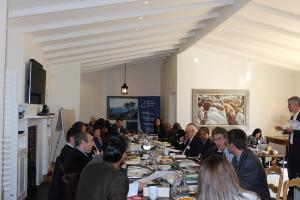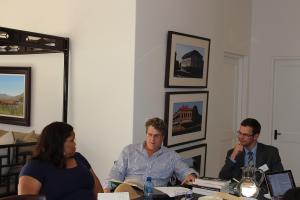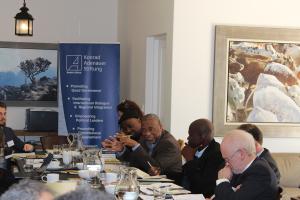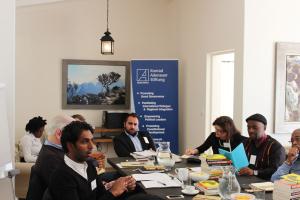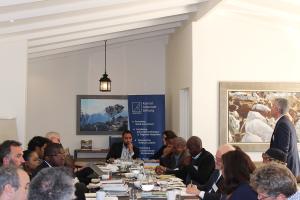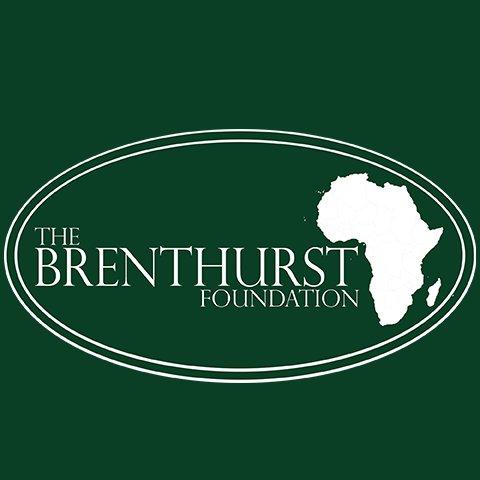From Critique to Action - Foundation Office South Africa
Expert talk
Details
Where is South Africa heading? From Critique to Action
A select group of individuals from civil society, business, politics, and academia gathered to discuss how to put SA back onto a positive trajectory. Several main themes emerged from the discussions, notably the importance to reinforce and improve the relationship between the private sector and the government. Participants further expressed the need of a complete overhaul of the public education system and the need of more funds to make it function properly. The discussions also emphasised the significance of the Rule of Law for a country that claims its constitutional identity and aims to achieve ambitious political and
economic objectives.
Inclusiveness is paramount for the future of the country. As a constitutional democracy, the principle of non-racialism must underpin every policy and the whole policy-making sphere should focus on the reduction of unemployment. It must be tackled especially in the context where growth has been characterised by discrepancies in terms of benefits amongst South Africans. South Africa ought to find a common narrative that allows its population to unify around the same objectives and the same economic targets. Former mistakes must be taken into account in order to find new optimal policies and take the most effective stances. Hence, social cohesion and employment ought to be the targets of every new policy. For a country undergoing development, the main driver of change will always be rapid and inclusive growth. Nevertheless, the education system is underfunded and lacks the necessary infrastructure to meet the basic needs of children. This situation particularly disadvantages the poorest section of the population. Even if South Africa did well in terms of accessibility to basic education, the quality remains very low and uneven on the territory.
South Africa may have missed several opportunities during its complete transformation from the oppressive apartheid regime to the current constitutional democracy. The transition could have been accelerated and improved in terms of economic successes. Former leaders had a lot of political capital but might have used more to bring changes to the country and to forward this political capital to their successors. Direct discussions with the business community to trigger a comprehensive transformation within business places and encourage the private sector to be more inclusive from the very beginning seem to be necessary. Therefore, South Africa witnessed high growth rates years ago but the progression seriously slowed down and the inequalities remain amidst the highest in the world. Amongst participants, there were several calls expressing the need that the current South African business community must adapt and adjust in order to build a more inclusive national community.
South Africa needs to fully renew the relationship between the Business sector and the Government. There was a consensus among participants to emphasise the importance of improving the exchanges between them and creating multiple communication channels to further the cooperation, notably in terms of policy-making and political consultation. The Government cannot be crony capitalist and anti-business at the same time. In this light, numerous participants also echoed the significance of procurement laws and their improvement as a potential solution to reinforce the legal system of the country.
Recently, the respect of the Rule of Law has been weakened because of the numerous political scandals and the behaviour of high-rank South African politicians. A consensus has been found among participants to reemphasise the importance of having stable institutions underpinned by the enforcement of the fundamental legal and constitutional principles. There is no possible political and economic progress without achieving the embedment of the Rule of Law in every aspect of the public life, politicians should therefore lead the way unless all intents of reforms might be in vain. Beyond the symbolic importance of the Rule of Law, it is crucial to recall that South Africa still occupies the 73rd position in the World Bank Doing Business Ranking. The Rule of Law is thus paramount to strengthen the constitutional foundations of the country but also to pave the way for an attractive economic environment.
Written by Pierre-Olivier Teissier-Clément, KAS Research Assistant




